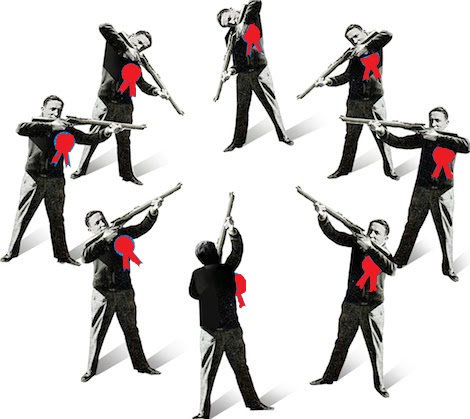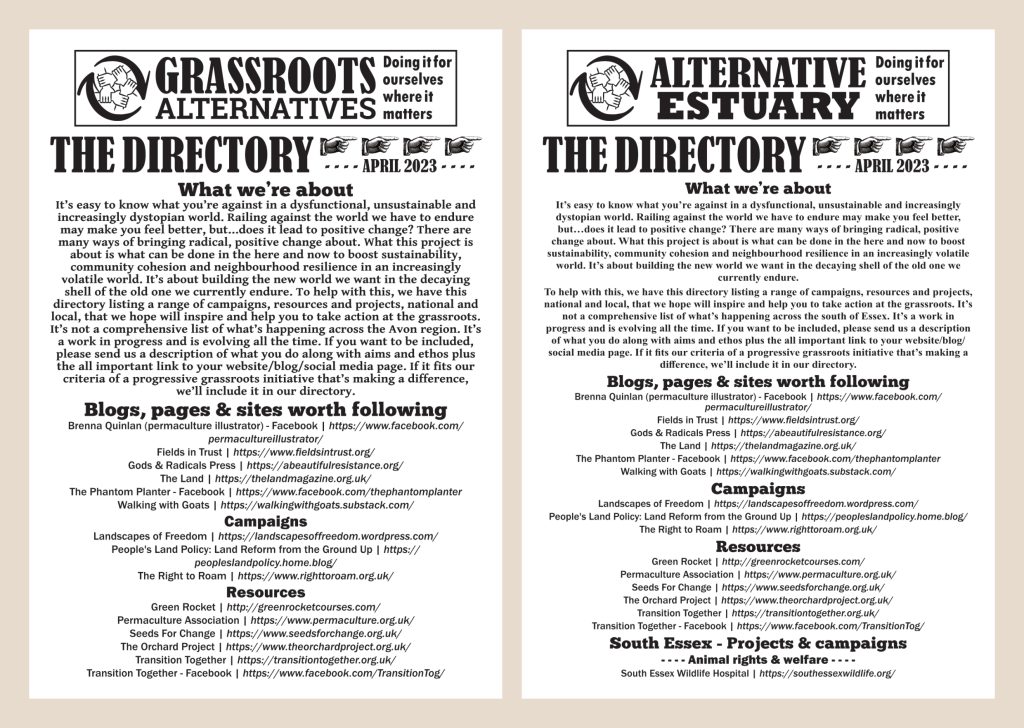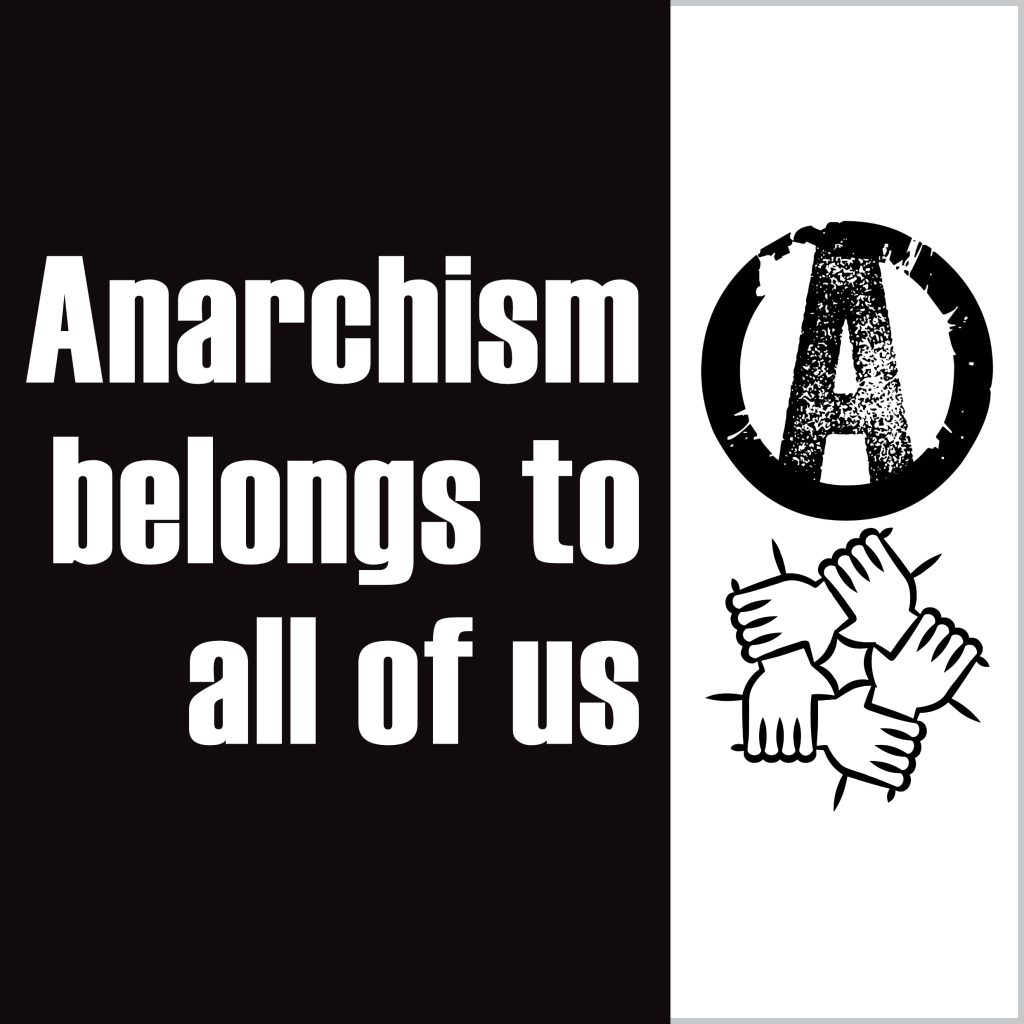
The Stirrer
This post was first published on The Stirrer blog. It was written in response to ongoing disputes within the anarchist movement (such as it is) in the UK. While the references are specific to the UK, the important take away from this post is that anarchism does not belong to a ‘movement’ or even a faction within that ‘movement’ – it belongs to all of us putting it into practice on the ground where we live.
Regular readers of this blog will be only too well aware of my differences with the anarchist movement here in the UK. They will also be aware that I’ve made it as clear as possible that my involvement with that movement is over for the foreseeable future. I’ve written more posts than I care to remember about the severance of this relationship and recognise that some people may think I’ve possibly become a bit obsessive about it! Having said this, I haven’t written that much about where I stand with anarchism for six months due to being pretty busy with other things. For the record this is the most recent post I’ve written about the relationship and why it ended: Honesty vs tribalism 17.2.23.
I’ve written this piece because there are a few things about who supposedly ‘owns’ the movement and what anarchism actually is that I want to try and clarify. In part, it was written in response to some of the ongoing sniping that’s going on between various factions in the movement. If this sniping is all people see of anarchism, then it may well not have much of a future. What this piece attempts to do is get across the idea that it’s perfectly possible for anarchism to flourish away from any self defined movement.
Do I still follow what’s going on within the anarchist movement, particularly relating to the arguments and splits? Of course I do. In part that’s to reaffirm my decision to walk away from the movement. It’s also down to the need to monitor what various parties are saying about issues ranging from gender identity politics, through the aftermath of the Covid ‘crisis’ and onto what’s being said about the conflict between Ukraine and Russia. It would be negligent of me to not keep tabs on what’s being said and argued over, even though ploughing through some of the threads and posts can often be a tedious and downright aggravating experience. If you really want an example of how differences are aired, there’s this from a member of the Anarchist Federation about the Anarchist Communist Group: Pointless Drama. An Autopsy. After reading this, I’d recommend a long, soul cleansing walk out in the fresh air…

Back in 2018, I did accuse certain members of the Freedom collective of acting as ‘gatekeepers’ to the movement. That was born out of the frustration of trying to have a reasoned discussion about gender identity politics. A frustration that at the time was exacerbated by the perception that the main voices in anarchism such as Freedom weren’t prepared to have a reasoned discussion. Was I right to accuse Freedom and their allies of ‘gatekeeping’ the movement? On reflection I wasn’t. It’s not because I’ve changed my mind about the positions Freedom have taken, because I haven’t. It’s because I’ve been thinking about what anarchism is and have come to the realisation that no one acts as a gatekeeper to it.
Sure, Freedom is a long established publisher and bookshop and their allies in the Anarchist Federation have been around for a fair while. Between them and others, they organise the Anarchist Bookfair in London, the successor to the London Anarchist Bookfair which had its last outing back in 2017. On the surface, it would appear that having the assets such as a publishing house, a bookshop and a major bookfair puts them in the position of acting as gatekeepers to anarchism.
This is where a distinction needs to be made. The aforementioned may well have some influence over who does and doesn’t get involved in the anarchist movement as it stands. They have absolutely no say over who gets to put anarchism into action on the ground.
It is vitally important to make this distinction if we are to move on from what appears to be an impasse. The movement is not the whole of anarchism, it’s just a part of it. If anyone in the movement thinks they are the whole of anarchism and that anarchist ideals will never take hold without their input, then may I respectfully suggest they give their heads a wobble because what they’re doing is vanguardism. Hopefully, most anarchists recognise that anarchism is something whose potential is fairly deep in the human psyche and does not need the input of one particular faction to make it work.
For me, anarchism is the spontaneous self organisation of people at the grassroots who want to take the future of their communities into their own hands. It means self organisation on a non-hierarchical basis without recourse to any self appointed leaders. Sometimes this is in response to an emergency. Sometimes it’s to meet the needs of a community that are being ignored by the local authorities. Sometimes it’s to fight back against workplace oppression when the existing union structure fails to do so or actively frustrates the workers involved. It’s something that can and does happen right across the globe as and when the need arises.

In the immediate aftermath of the Grenfell Tower fire disaster back in 2017 when the local authority was caught flat footed in their response, the residents of the block and surrounding estates self organised to provide what relief and support they could. Because it was a dire emergency, they obviously didn’t have the time to read any anarchist literature on self-organising, they just got on with the tasks in hand. It worked as well as it could because of the basic human desire to co-operate to get things done, particularly in an emergency situation. The desire to co-operate to meet needs being an intrinsic part of what makes us human, despite the efforts of the neo-liberal/corporatist elites to metaphorically and sometimes literally beat it out of us.
Away from emergency situations, can you imagine what life would be like if every one who volunteered in their community decided to jack it in? People would swiftly recognise the contribution that volunteers make to the community as we outlined in this piece on our sister blog, Grassroots Alternatives: If it wasn’t for volunteers… 26.11.22. If you want an idea of the number of volunteer groups there are doing what they can to make a difference in the communities they operate in, have a look at this page on Grassroots Alternatives: The Directory. It lists projects in the south of Essex where our comrades from Alternative Estuary operate and in the Avon region where we operate.

These projects have varying degrees of organisation and I recognise that some would not fit a rigid anarchist purity test. However, they all show that in one way or another, people are motivated to make a difference and will happily give up their time and contribute their energy to doing so. The Directory is a work in progress. While it lists groups with varying degrees of structure, it cannot list those spontaneous projects where residents have decided to simply get on with the job in their immediate neighbourhood but for a variety of reasons, have no online presence or formal structure. The previous post on this blog features one such project on an estate where one of our Alternative Estuary comrades live: At the grassroots… 29.3.23.
I’ve used this quote before and make no apologies for doing so again:
The anarchist conclusion is that every kind of human activity should begin from what from what is local and immediate, should link in a network with no centre and no directing agency, hiving off new cells as the original grows.
Colin Ward – https://en.wikipedia.org/wiki/Colin_Ward
For me, this is the true spirit of what anarchism is, regardless of where it happens across the globe. It’s something that happens at the grassroots where we live. This is something that we should always bear in mind…
As for the gatekeeping of the movement that does occur, I see it as damage to be circumvented. It’s something that a few of us like minded people of an anarchist bent have done with this Nevermore blog. Together, we’ve built our own online space where we can post up what we think. It should be noted that Nevermore doesn’t have a strict line on issues – there’s room for differences of opinion and debate. That’s just one example of finding alternative ways to express what we think anarchism is about.

Okay we haven’t got the infrastructure such as a bookshop or our own bookfair…yet… Should we decide that we do want these things, while a lot of hard work would be involved, it’s certainly within the realms of possibility that they can be created and run. Obviously there are some constraints – finding premises for a bookshop in cities and towns that are being gentrified and effectively colonised is a major headache. Hanging on to what you have is also a major headache as the collective behind the Hydra bookshop found out to their cost a few years ago when they were turfed out of their premises in Bristol’s Old Market Street to make way for gentrification. However, there’s always the online option for a bookshop. There are always alternative ways of getting things done. As for bookfairs, while organising a full event for ‘dissident’ anarchists has to my knowledge yet to happen, we’re finding our own ways of meeting and organising that serve our purposes.
Anyway, that’s enough about the movement and the perceptions about gatekeeping. The point I want to make with this piece is that anarchism does not belong to any one group or faction. I’ve made the mistake of thinking that in the past and have found myself getting sucked into pointless factional sniping when I should have been focusing more on what I was doing with projects in my community. Anarchism is an idea and a way of living. Anarchism is also a way of struggling for and building a better world. It’s something that can and does happen at the base in our communities without any reference to what some may see as a self appointed movement. It’s something that should belong to humanity as a whole…
